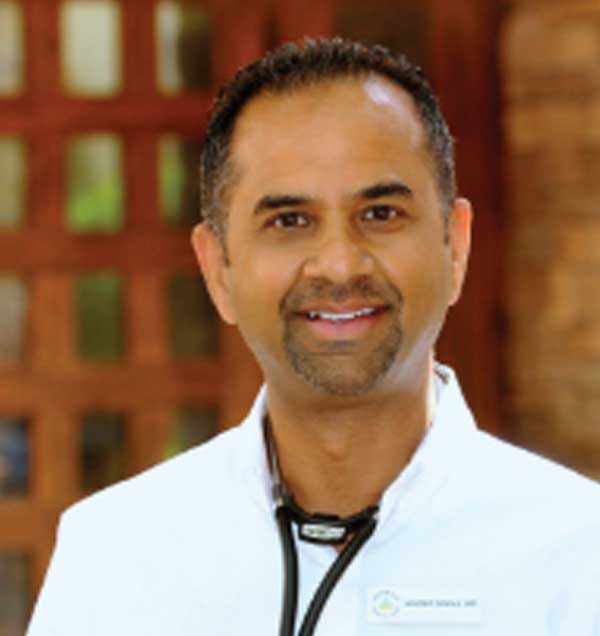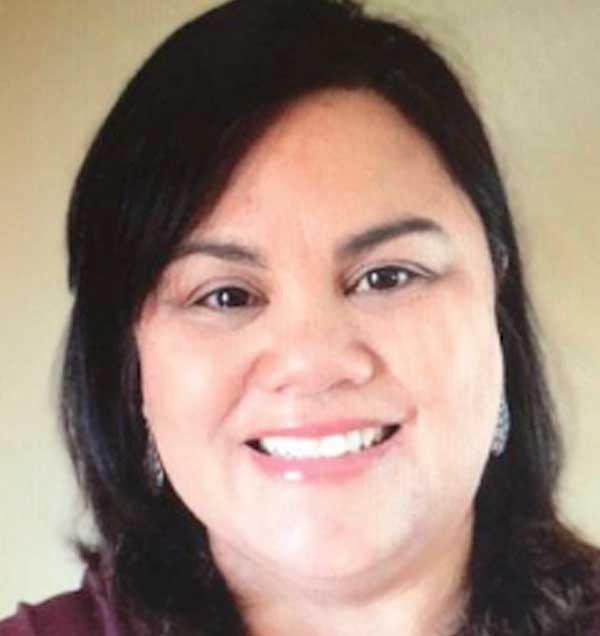OFFICE VISITS
Overview
Our team of providers offer a full range of primary, preventive and chronic health care management for adults 18 and above. With our conveniently located central Tucson clinic, we offer a wide range of services including post hospitalization transitional care. Our preventive care focuses on wellness, screening and promoting overall health for the adult population.
We are also able to offer telehealth/virtual visits, same-day appointments and we welcome walk-ins.
We are open Monday through Friday from 9 AM to 5 PM and are closed weekends and most major holidays.
Primary Care Services for age 18 and above
- Preventive services and immunizations.
- Care for chronic medical conditions as hypertension,
diabetes, CHF, Asthma, COPD, and hyperlipidemia. - Women’s health services.
- Minor outpatient procedures.
- Same-day appointments for acute need.
- Laboratory services on site.
Providers

Harbir Singh, MD
Dr. Singh, a native from India, graduated from University of Arizona, College of Medicine in 2004. He specializes in Internal Medicine dealing with prevention, diagnosis and treatment of adult diseases. He started practicing Primary care medicine in Green valley, AZ immediately after his graduation while simultaneously working as a Hospitalist in several Tucson Hospitals. After serving the geriatric population in Green Valley for 3 years, he moved to Tucson where he worked in several nursing homes providing sub acute and long term care. During this period, he also worked as a hospitalist in various Tucson hospitals. MORE>>>

Glenda Aguirre-Kaima, FNP-C
Glenda Aguirre-Kaiama is a family nurse practitioner providing primary care to patients across the lifespan. She originally attended Hawaii Pacific University in Honolulu, Hawaii where she received a Bachelor of Science Degree in Nursing. While working in the acute care unit she completed her Master of Science Degree in Nursing from University of Phoenix in Tucson, Arizona. Glenda is a Board Certified Family Nurse Practitioner and has worked in the primary setting since 2013. Glenda was born and raised on the island of Molokai, Hawaii. She enjoys spending time with her husband and daughter riding their ATVs and camping.
Forms and Policies
About your Visit
During your initial visit with a provider, you will need to complete paperwork on your health history, medications and insurance coverage. On subsequent visits you can update this information as needed. Below is information on what to expect as well as information related to patients with Medicare and patients with commercial insurance.
Before your Visit
Please bring the following:
- Completed PHC new patient forms (includes Registration form, Health History form) – if you do not have these forms or they are not completed, please arrive 30 minutes before your scheduled appointment.
- All current medications bottles (or a list of current medications including dose and how often each is taken)
- Advance directives and medical power of attorney (if you have these documents)
- Any prior medical records are helpful
- All prior vaccination records
- Current insurance card
- It is also helpful to bring a list of questions for your provider or other health care professional. Many times, patients feel rushed or forget to ask questions when they are in our office. It’s important to us that all of your questions are addressed during your visit.
Since health plan benefits vary, and the amount of your financial obligation and or copay at the time service may also vary, remember to review your specific plan coverage. Your insurance card information will help us verify your coverage.
Plan to arrive 15 minutes earlier than your scheduled appointment. It is also helpful to bring a list of questions for your provider or other health care professional. Many times, patients feel rushed or forget to ask questions when they are in our office. It’s important to us that all of your questions are addressed during your visit.
Please bring your medication bottles with you to your appointment.
During your Visit
- Review your list of questions with your health care provider
- Observe the processes of the office
- Was there someone who went above and beyond somehow?
- Was there something that you didn’t like about your visit?
- Is there something that you believe could be improved upon?
- Did the office staff make you feel comfortable while you were in the office?
After your Visit
Following your visit, you will be contacted with a survey to tell us about your visit. This is your chance to be honest and tell us how we did.
Annual Wellness Visit
Newly eligible Medicare beneficiaries are entitled to an initial wellness visit. At this time, we will:
- Give you a health-risk assessment, which may include a questionnaire that you complete (with or without the help of your doctor) before or during the visit that looks at your health status, injury risks, risky behaviors and urgent health needs.
- Take your medical and family history.
- Make a list of your current health care providers, suppliers of durable medical equipment and medications. Medications include prescription medications, as well as vitamins and supplements that you may take.
- Create a written 5-10 year screening schedule. This schedule depends on your individual health status, screening history and the age-appropriate, Medicare-covered, preventive services for which you are eligible.
- Identify risk factors and current medical and mental health conditions along with related current or recommended treatments.
- Check your height, weight, blood pressure and body mass index.
- Screen for cognitive impairment, including diseases such as Alzheimer’s or other forms of dementia. Medicare does not require that physicians use a test to screen patients. Doctors are asked to rely on their observation of the patient or on reports by the patient and others.
- Review risk factors for depression.
- Review your functional ability and level of safety, including screening for hearing impairments and your risk of falling.
- Assess your ability to perform activities of daily living such as bathing and dressing, and also your level of safety in your home.
- Give health advice and referrals to health education or preventive counseling services or programs aimed at reducing identified risk factors and promoting wellness. These include weight loss, physical activity, smoking cessation, fall prevention and nutrition.
Annual Wellness Visits after your first visit may be slightly different. As part of subsequent wellness visits, your doctor will:
- Update the health-risk assessment you completed.
- Update your medical and family history.
- Check your height, weight, blood pressure, heart rate and body mass index.
- Update your list of current medical providers and suppliers.
- Screen for cognitive issues.
- Update your written screening schedule from previous wellness visits.
- Update your list of risk factors and conditions and the care you are receiving or that is recommended.
Annual Physical Exam
As part of the Affordable Care Act, most commercial insurance plans are required to cover an annual physical exam at no additional charge. During this exam, we will:
- Update your health history. A doctor may ask to be updated on new developments, including job and relationships, as well as medications or supplements.
- Check your vital sign, including blood pressure, height, weight, heart rate, respiratory rate and body mass index.
- Conduct a visual exam. Your doctor will review your appearance for signs of any potential conditions.
- Conduct a thorough physical exam, including checking the head and neck, abdominal area, hair, nails and limbs. The doctor will also listen to the heart and lungs.
- Order laboratory tests. To complete the physical, the doctor may draw blood in order to run several laboratory tests. These can include a complete blood count and chemistry panel. This helps detect irregularities in the blood that might indicate a larger problem. The doctor may request a lipid panel, or cholesterol test, if a patient has an increased risk of heart attack, heart disease or stroke.
- Screening tests might also be requested. These differ for women and men.
- Women:
- Mammogram: a mammogram is needed every two years between the ages of 50 and 74. A patient can request more or less frequent testing based on personal and family history of breast cancer.
- Osteoporosis screening: bone density scans should begin around age 65.
- Men:
- Prostate cancer screening: Men may need prostate-specific antigen tests or digital rectal examinations. Breast exam: at each physical, a breast exam can be used to check for abnormal lumps or signs of breast cancer.
- Testicular exam: A doctor may wish to check each testicle for signs of a problem, including lumps, changes in size, and tenderness.
- Both Men and Women:
- Colorectal cancer test: Begin tests for this cancer at age 50.
- Depression: Many patients aren’t aware of their symptoms of depression because they are easily attributed to other things. However, a depression screening at each yearly check-up can check to see if symptoms are a result of depression.
- Diabetes: People with a family history or risk factors for diabetes, such as high blood pressure and high cholesterol, should be screened for diabetes. Doctors may use the fasting blood sugar or the HbA1c test.
- Sexually transmitted infections, or STI, screening: Based on personal sexual history, regular STI screenings during each annual physical exam may be suggested.
- Women:
Email Us
Please do not send private health information through this form. Although the form is secured, it is not HIPAA compliant. Thank you.
